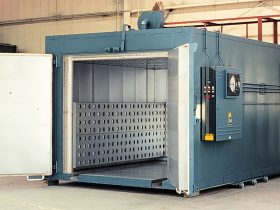Setting your feet up and retiring should be a reason to celebrate. But it can also be stressful.
That monthly paycheque suddenly stops, and you have got to depend on your super and the Age Pension.
Property investment can give some added peace of mind. It offers regular income and potential tax benefits and will hopefully appreciate value. With interest rates at record lows, it may also be more reasonable than you think.
Understanding that property investment can support you fund your retirement is one thing. But what are the financial importance, and how can it impact other payments, including your super and Age Pension payments?
As an example, let’s assume a 2-bedroom apartment that’s rent for $450 a week. That adds up to approximately $23,000 a year in potential income.
If we deduct annual body corporate fees, council rates, and other management costs, you might have around $18,000 in net income.
Retirement Income Strategies and Planning:
One of the best and easiest actions to figure out retirement income is creating a detailed retirement plan. You need to dig into the details of your financial situation and see how well that mixes with your hopes for the future.
- Start by assessing what you have
- Figure out precisely what you need and would like to spend
- Look at the details that might sabotage your finances
- Create a retirement income plan tailored to meet the demands you will face in the future
- Maintain, update and tweak your plan over time
You probably have significant retirement income from Social Security. The trick is calculating how much more you might be spending every month and figuring out a reliable income plan for that difference.
Here’s how that scenario might play out for self-funded retirees and people obtaining a part Age Pension.
-
Self-funded retirees
The apparent benefit of being self-fund is you don’t have to worry about government income support to meet your income needs in retirement.
You’ll need to draw down a minimum amount from your super every year, currently starting at 2%, but beyond that, you can structure your income as you see fit.
Why Choose Wooden Flooring For Homes?
That being said, you will require to be mindful of income tax. If you’re aged 60 or over, your super drawdown isn’t taxed, but other sources of income are.
$18,000 in income from an investment property would fall below the income tax threshold, which means it’s effectively tax-free (dependent on any other income sources you may have).
If you’re a couple, you can also split this income between you, which can be adequate for tax purposes.
If you’re still paying off the investment property, this gives even greater leverage in managing your tax, although that’s a conversation you should have with your accountant or financial planner.
-
Age Pension retirees
The Age Pension is subject to both an income and asset test.
Under current legislation, having a property investment may impact your income and asset test.
It’s a suitable idea to speak with your accountant or financial planner to fully understand what a property investment means for your Age, Pension, and overall income.
But there are opportunities to invest, derive a payment, and still qualify for the Age Pension under the right circumstances.
-
A Rental Property Can Generate Retirement Income
Purchasing a second property in the city where you live or own a place in a popular vacation spot can help generate income to use in retirement. You could buy an apartment, lease it to tenants and collect monthly rent.
If you buy a cabin in the mountains, you could use it as a getaway and rent it to others when you are not using it.
Owning rental property typically requires a significant upfront investment. You might pay for the place with cash or use your savings to make a down payment and take out a mortgage.
If you have funds in a self-directed IRA, you can use money from the account to invest in real estate, but there are various requirements you’ll have to meet.
“The investor must buy the real estate strictly for investment purposes,” says Daniel Milan, managing partner of Cornerstone Financial Services in Southfield, Michigan.
You’ll have to pay in cash from the IRA and must use the IRA to pay for all the expenses related to owning the property.
Buy and Sell Several Properties
If you live in an area where housing prices are expected to rise, you might be interested in purchasing multiple homes with the plan of selling them later for a higher price.
You could also acquire several properties that you rent to tenants. As your income goes up, you could build a real estate portfolio to help fund retirement.
While owning properties may help your retirement funds increase, there is often a vast amount of legwork involved in finding places, acquiring them, making needed repairs or renovations, and then renting or selling them.
The time requirement is typically much more demanding than what’s needed for other types of investments.
“Real estate, unlike stocks, requires management and ongoing maintenance,” says Pam Krueger, founder, and CEO of Wealth ramp, an advisor matching platform that connects consumers with vetted fee-only financial advisors.
Hiring a property manager can alleviate some of the burdens of caring for multiple properties, but you will have to pay for the service, cutting into your profit.










Leave a Reply